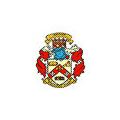Studies & Degrees in Earth Sciences
Choose where you would like to study Earth Sciences:
AustraliaBelgiumBermudaCanadaChinaDenmarkEthiopiaFranceGermanyIndiaIrelandJapanNetherlandsSpainSwedenSwitzerlandThe United KingdomThe United StatesEarth Sciences Study Programs
Earth sciences, as suggested by the name, deal with the scientific study of the planet Earth. This discipline comprises all sciences examining the Earth – physics, chemistry, biology, geology, geography, meteorology, and mathematics. The Earth sciences ‘divide’ the Earth into four spheres of study: the atmosphere, the hydrosphere, the biosphere, and the lithosphere; these correspond to air, water, life, and rocks. People dealing with Earth sciences are able to make some crucial discoveries. Examples of important facts about the makeup of our planet include the chemical composition of air (nitrogen, oxygen, etc.), as well as the planet’s diameter and mass. Earth scientists have also estimated the path of the Earth around the sun as well as what it means for seasonal variations in temperature and weather.
Furthermore, earth scientists constantly study the relationship between the biosphere (all the Earth’s life) and the rest of the planet – for instance, plants convert carbon dioxide (concerning the atmosphere) into oxygen, while animals do the opposite. The photosynthesis is an important process, allowing human beings to exist on this planet, and it is one of the factors earth scientists examine. Finally, one of the most significant findings of Earth science was in the 1950s, when it was proved that the continents actually are large rock plates, floating on a liquid mantle underneath.
Personal Qualities
To be involved in Earth sciences, you will most likely need to have an aptitude for sciences and an explorative nature. Here are some other skills and qualities you might wish to consider:
- Enjoy research
- Able to work with accuracy, attention to detail, and prepare error-free records and reports
- Interested in examining rocks, fossils, minerals, and basically all components of the Earth
- Willing to work outside and travel to remote locations
- An excellent team player
- Physically fit
Study Options
Because Earth sciences include so many disciplines in them, it can be guessed that a degree in this discipline would be a very broad liberal arts major, which can prepare you for a wide range of career options. It is not uncommon that students decide to give a better direction early on in their education by combining Earth Sciences with other disciplines like mathematics, industrial technology, computer science, anthropology, geography, biology, chemistry, and other related areas.
Furthermore, this is the kind of subject that you would need to have extensive practical experience in, for which reason the institution you choose should be able to offer excellent opportunities for research, getting in touch with top professionals in the field, and a lot of on-hands experience. Not surprisingly, the discipline also suggests that many students decide to do a postgraduate degree or a Ph.D. in a more specific field of their choice. In any case, all disciplines involving sciences and research can be highly demanding, and it would be best for you to look for a number of sources from which you can learn – school classes, seminars, specialized magazines, and any related internships (both paid or unpaid).
Career Options
Career Options for Earth sciences graduates are very wide, and their career path would mostly depend on their eagerness and preferences. Earth scientists are often employed by large companies and organizations in the exploration and construction fields. There is also the possibility to look for a job in smaller organizations in the environmental field. If you decide to specialize, here are some job roles you might wish to consider: Atmospheric scientist – you would be studying weather processes, the global dynamics of climate, solar radiation and its effects, and the role of atmospheric chemistry in ozone depletion, climate change, and pollution; Economic geologist – you would be exploring and developing metallic and nonmetallic resources, and you would study mineral deposits and find environmentally safe ways to dispose of waste materials from mining activities; Engineering geologist – you would apply geological data, techniques, and principles to the study of rock and soil as well as ground water; you would be responsible to investigate geologic factors that affect structures such as bridges, buildings, airports, and dams. As a final point, with a degree in Earth sciences you can even work for NASA, teach at a university, or write articles for magazines like National Geographic.


